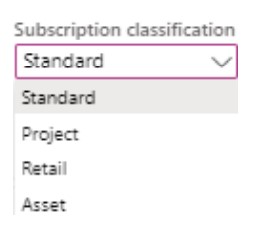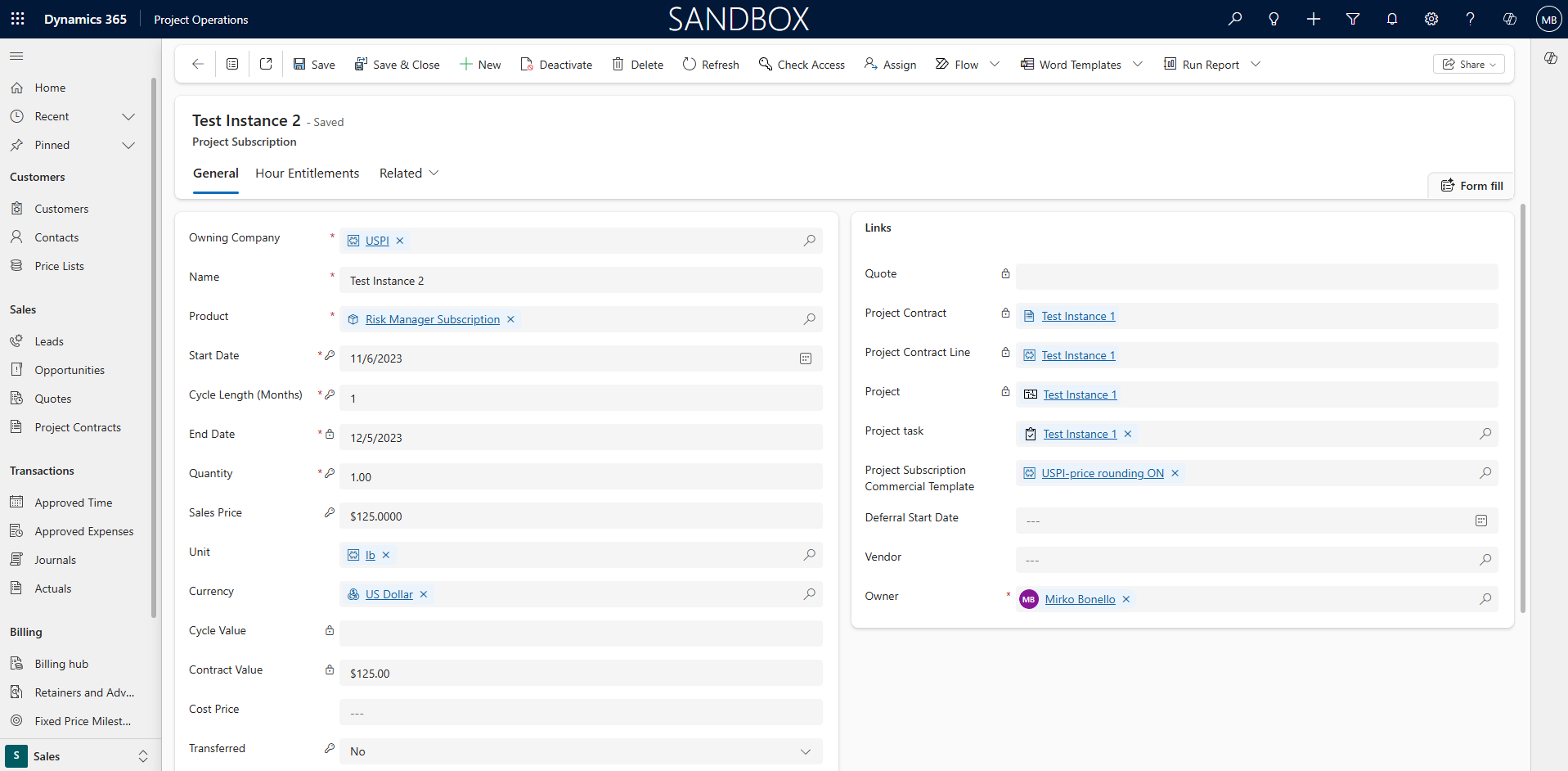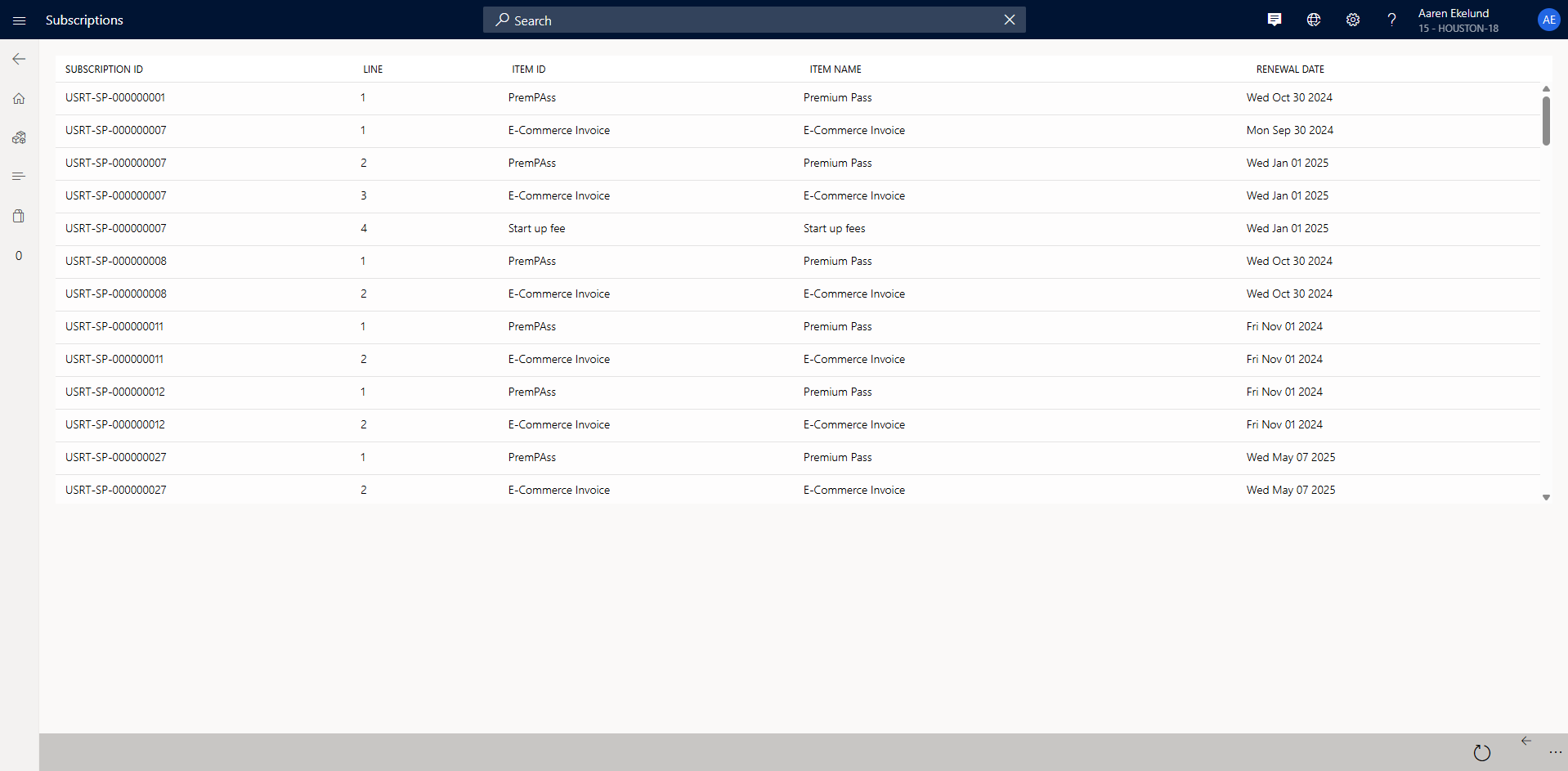LISA BusinessPro ships with four in-built Subscription Classifications. These are:

Standard
Used for standard subscriptions which do not fall under the other classifications. This can include, but is by means not limited to, billing of licenses, telco plans including VOIP consumption usage, maintenance agreements and support agreements of purchased or in-house built/configured software or hardware configurations. License subscriptions plans can also be generated from sales quotations and sales orders.
Project
Used for project-related subscriptions of software, support, maintenance or any other service. Subscription plan lines for subscriptions classified as “Project” cannot be created manually but must be generated through either.
- The “Project and accounting module” of Microsoft Dynamics 365 Finance -or-
- Microsoft Dynamics 365 Project Operations: LISA ships with an intermediate screen hosted in FinOps (teams license access is enough) which is triggered from D365-PO. For this integration to work, the LISA managed solution in the Customer Engagement (CE-side) of D365-PO must be deployed and dual-write successfully configured to synchronize standard entities between the CE and FnO side of the solution.
Typically standard Project sales orders cannot be manually invoiced but must be processed through the project’s invoice proposal process. However, LISA’s posting engine now support direct posting of Project actions directly from the subscription management cockpit or the
Subscriptions actions list page.
Please note that invoicing of project sales orders can only happen during specific life-cycle stages of a project thus if the requirement is to invoice a subscriptions (such as SaaS licenses) even after the project ends, you can use a Standard classification and still link the subscription plan to a project for reporting purposes.


Retail
Manage commerce/retail and e-commerce subscriptions including integration with Microsoft Dynamics 365 Commerce. The Commerce features of LISA include:
- the retail pricing engine (CRT),
- omni-channel distribution jobs to synchronize subscription data to the channel database,
- Real Time Calls (RTS) to create/update subscriptions,
- Retail Assortments,
- Retail categories,
- Delivery schedules.
- Generation of subscription plans from multiple retail channels such as e-commerce, POS and call center,
- Loyalty Schemes integration,
- POS Extensions for Subscription data
When classifying a subscription plan as “Retail”, a retail channel must also be linked to the subscription plan.

Asset
Manage subscriptions relating to assets for example maintenance contracts, rental contracts, insurance etc.
